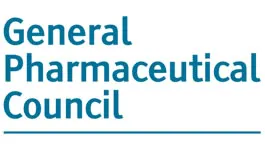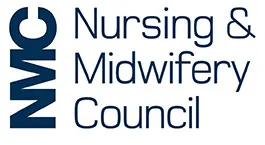Practice Certificate in Independent and Supplementary Prescribing
| UCAS code | 1234 |
|---|---|
| Duration | 6 months part time |
| Entry year | September 2026 |
| Campus | St Luke's Campus |
| Typical offer | 2.2 Honours degree (or equivalent) in a relevant discipline. |
|---|---|
Why study Practice Certificate in Independent and Supplementary Prescribing at Exeter?
• Designed to help you achieve accreditation for annotation as an Independent or Supplementary Prescriber on the GPhC, NMC or HCPC registers*
• Blend of online learning supported by minimal face-to-face contact days with communication and clinical skills training within our Clinical Skills Resource Centre
• Problem Based Learning (PBL) scenarios allow students to tailor their learning to their own needs and develop personal learning objectives.
• Expert tutors and guest lecturers will be invited from a range of clinical and research backgrounds
• Can be taken as a standalone module or the credit can be used towards the MSc Clinical Pharmacy programme, MSc Advanced Clinical Practice programme or the Advanced Clinical Practice Degree Apprenticeship
• Acquiring this qualification and Independent or Supplementary prescriber status will enable you to seek extended roles in clinical practice as a non-medical prescribing practitioner
* Successful completion of an accredited Independent and Supplementary Prescribing course is not a guarantee of annotation on the GPhC, NMC or HCPC registers or of future employment as an Independent or Supplementary Prescriber
Fast Track (current Exeter students)
Contact
Programme Directors: Will Farmer and Dr Rob Daniels
Web: Enquire online
Phone: +44 (0)1392 72 72 72

The programme is supported by NHS England and Health Education England through the Pharmacy Integration Fund.
![]()
Top 10 in the UK for our world-leading and internationally excellent Clinical Medicine research
Based on 4* + 3* research in REF 2021
![]()
Our Public Health research is 11th in the UK for research power
Submitted to UoA2 Public Health, Health Services and Primary Care. REF 2021
![]()
Major capital investment in new buildings and state-of-the-art facilities
![]()
Top 150 in the world for Public, Environmental and Occupational Health
U.S. News & World Report Best Global Universities 2025-26
Accreditations



This course was accredited by the General Pharmaceutical Council in December 2018. Please see the GPhC accreditation reports for more information. It was also accredited by The Health and Care Professionals Council (HCPC) and Nursing and Midwifery Council (NMC) in March 2021.
Entry requirements
Normally a minimum 2.2 Honours degree (or equivalent) in a relevant discipline. A personal statement, detailing your reasons for seeking to undertake this subject, will be required.
Entry requirements vary by regulator. Please check you meet the specific requirements below:
GPhC/PSNI
GPhC/PSNI registered pharmacist with at least two years of appropriate patient-orientated experience in a UK hospital, community or primary care setting following qualification
NMC
Registered nurse (level 1), midwife or SCPHN with at least one years’ appropriate patient-orientated experience in a UK hospital, community or primary care setting following qualification
HCPC
HCPC registered physiotherapist, therapeutic/diagnostic radiographer, podiatrist or dietitian, with at least three years post-qualification experience in the area in which you will be prescribing
HCPC (Paramedics)
Registered paramedic with at least five years since qualification, practising in your area of expertise for at least 12 months
Have completed post-qualification study at level 7 (Master’s level)
All applicants must:
• Have the agreement of a designated prescribing practitioner (DPP), practice assessor (PA) or Practice Educator (PE) who is willing to supervise your training
• Demonstrate experience and reflective professional practice
• Have identified an intended area of prescribing practice
• Have support from a line manager, employer or service commissioner
• Be fit to practice in accordance with the requirements of your regulator
Please visit our international equivalency pages to enable you to see if your existing academic qualifications meet our entry requirements.
Application process
Please complete the Independent and Supplementary Prescribing Course Application form and the IP SP Educational Audit Tool form before applying online.
Applicants may be invited to undertake an informal interview as part of the application process. This will take the form of an individual meeting/telephone conversation with one of our academics.
How employers can support
Ensure your staff are prepared for future prescribing roles. To undertake this programme, applicants must have support from a line manager, employer or service provider.
Undertaking the Clinical Pharmacy or Advanced Clinical Practice Programmes?
If you are already on the MSc Clinical Pharmacy or Advanced Clinical Practice programmes and want to do Independent or Supplementary Prescribing as part of this, you will not need to apply to Independent Prescribing through the online application process. Instead, please complete the Independent and Supplementary Prescribing Course Application form (ACP)
If you are applying for the MSc Clinical Pharmacy or Advanced Clinical Practice programmes and wish to take the Independent or Supplementary prescribing course as part of this, you will need to need to apply for both the MSc programme and the prescribing course at the same time.
If you are an Advanced Clinical Practice degree apprenticeship applicant and intend to choose prescribing as your year two option, you will need to complete an application form for this module in addition to your apprenticeship application. The appropriate forms will be provided as part of the DA application process
Please also see our guidance on essential documentation required for an initial decision on taught programme applications.
Entry requirements for international students
Please visit our entry requirements section for equivalencies from your country and further information on English language requirements.
Please also see our guidance on essential documentation required for an initial decision on taught programme applications.
Entry requirements for international students
English language requirements
International students need to show they have the required level of English language to study this course.
The required IELTS test scores for this course fall under Profile B2.
Please visit our English language requirements page to view the required test scores and equivalencies from your country.
Course content
This Independent and Supplementary Prescribing course is designed to help you achieve accreditation for annotation as an Independent or Supplementary Prescriber on the GPhC, NMC or HCPC registers. We aim to produce competent non-medical prescribers who can provide safe, effective and evidence-based prescribing to address the needs of patients in their area of practice.
Features include:
- Online learning supported by face-to-face contact days
- Problem Based Learning - patient case-based activities that reflect the challenges of current clinical practice
- Communication and clinical skills training within our Clinical Skills Resource Centre
- Supportive, enthusiastic and clinically active tutors
- Increase your professional expertise and status and enhance your career prospects
- Complete the course to obtain a Practice Certificate in Independent/Supplementary Prescribing (as appropriate to your profession)
- Can be taken as a standalone module or the credit can be used towards the MSc Clinical Pharmacy programme, MSc Advanced Clinical Practice programme or the Advanced Clinical Practice Degree Apprenticeship
Structure
Our Practice Certificate in Independent and Supplementary Prescribing is a six month part-time 45 Credit programme of study at National Qualification Framework (NQF) level 7.
It is taught using a blended approach to learning incorporating taught sessions, clinical skills practice and case-based discussion along with the support of online resources and moderated activities on the University of Exeter’s electronic learning platforms. Expert tutors and guest lecturers will be invited from a range of clinical and research backgrounds.
Credits gained on this programme can be used towards the MSc Clinical Pharmacy programme, MSc Advanced Clinical Practice programme or the Advanced Clinical Practice Degree Apprenticeship
Contact Days
View the draft timetable of contact days for Independent Prescribing 2025/26
Please note: this timetable is a draft and may be subject to change.
The last contact day and assessment deadline for the programme will be earlier than the actual end date of your registration with the University, to allow a period of time at the end of your active studies for further support and mitigation, if needed
Compulsory modules
| Code | Module | Credits |
|---|---|---|
| HPDM147 | Practice Certificate in Independent and Supplementary Prescribing | 45 |
Supervised practice
The GPhC, NMC and HCPC all require that a trainee non-medical prescriber be supported and supervised by a prescribing practitioner who meets a series of experiential requirements. The different accrediting bodies give this role different titles:
• GPhC - Designated Prescribing Practitioner (DPP)
• NMC - Practice Assessor (PA)
• HCPC - Practice Educator (PE).
The NMC require a trainee to have both a Practice Assessor and a Practice Supervisor. Practice Assessors assess and confirm the student’s achievement of practice learning for a placement; they will also work with the nominated academic assessor to make a recommendation for student progression. The Practice Supervisors’ role is to support and supervise nursing and midwifery students in the practice learning environment. All students must be supervised while learning in practice environments.
For the purposes of clarity, we will refer to the Designated Prescribing Practitioner (DPP) for all roles.
The aim of the DPP role is ‘to oversee, support and assess the competence of non-medical prescribing trainees, in collaboration with academic and workplace partners, during the period of learning in practice’ (RPS, 2019). A DPP directs and supervises the trainee’s period of learning in practice – a required element of independent prescribing qualifications. They will also be responsible for assessing whether the learning outcomes have been met and whether the trainee has acquired certain competencies.
Our trainee non-medical prescribers are required to complete 12 days or 90 hours in clinical practice. This time must be planned and aligned to the trainee’s learning needs and consist of activities relevant to the development of the trainee as an autonomous practitioner. The trainee will keep detailed logs of their activities and the DPP will need to provide supervision, feedback and oversight. The Designated Prescribing Practitioner has to assess the achievement of the learning outcomes and provide confirmation by signing the student’s practice-based log.
At the end of the 90 hours in practice, the DPP is required to make a declaration that the trainee is suitable for annotation as an independent or supplementary prescriber (as appropriate to your profession).
Choosing your DPP
Your DPP must meet the Royal Pharmaceutical Society’s Competency framework for Designated Prescribing Practitioners (2019). This allows for the supervision of trainee prescribers in practice by non-medical assessors as described below.
The DPP must:
• Be a registered healthcare professional in Great Britain or Northern Ireland and in good standing with their professional regulator
• Be registered with their regulator as a legally independent prescriber for at least the last three years, with no significant gaps in practice which would affect this three-year requirement.
Have at least three years’ active and recent prescribing practice, patient-facing clinical and diagnostic skill within the student’s chosen therapeutic area/scope of practice, with no significant gaps in practice which would affect this three-year requirement.
• Have the support of the employing organisation(s) or learning in practice setting(s) to act as a DPP who will provide supervision, support and opportunities to develop competence in prescribing practice for the pharmacist prescriber in training.
• Have experience of teaching, supervising and assessing other health care professionals in clinical practice.
• Have adequate indemnity insurance in place for their own professional and supervisory role as a DPP and ensure that all learning in practice settings have adequate indemnity insurance in place.
Further requirements for this role can be found in section 7 of the Independent Prescribing Course Application Form
Finally, your DPP must be able to personally commit to the time required to provide supervised practice which must be no less than 45 hours or 50% of your time in practice.
You will need to have agreed who will be your DPP before applying for this course. Your DPP must complete and sign Section 7 of the IIP/SP Course Application Form 2022-23 before you submit your application.
Practice Placement Quality Assurance
All applicants must ensure that the University of Exeter IP SP Educational Audit Tool has been completed within the last 12 months for the organisation providing their supervised practice placement. The audit should be completed by the education lead, prescribing lead or a senior manager for the organisation, in consultation with IP/SP module leads at the university. This audit is an essential part of our processes to quality assure your practice-based learning.
A copy of the completed audit tool must be submitted with your application, if we do not already hold one for your organisation. Your NMP or Prescribing Lead will be able to advise you if this is the case. Your application cannot be approved without a current copy of the audit tool.
Fees
2026/27 entry
- UK fees: £2,700
- International fees: £2,700
Fees can normally be paid by two termly instalments and may be paid online. You will also be required to pay a tuition fee deposit to secure your offer of a place, unless you qualify for exemption. For further information about paying fees see our Student Fees pages.
Scholarships
The University of Exeter offers a wide range of scholarships to support your education, with £7 million available for international students applying to study with us in the 2026/27 academic year, including our prestigious Exeter Excellence Scholarships *. We also provide awards for sport, music and other achievements, as well as regional and partner scholarships with organisations such as Chevening, The Beacon Trust and the British Council. For more information on scholarships and other financial support, please visit our scholarships and bursaries page.
University of Exeter Alumni Scholarship
We are pleased to offer University of Exeter alumni beginning a standalone postgraduate programme in 2026/27 with us a scholarship towards the cost of your tuition fees. Full details can be found here.
*Terms and conditions, including deadlines, apply. See our website for details..
Funding and scholarships
UK government postgraduate loan scheme
Postgraduate loans of up to £12,167 are now available for Masters degrees. Find out more about eligibility and how to apply.
Funding
*STOP PRESS* NHS England have limited funding for places on this programme in 2025/26. For more information and to apply for this funding, please visit the NHSE Devon Training Hub website. Deadline extended to 4th July 2025.
Please note that you must also apply separately for a place on the programme using the buttons at the top of this webpage.
Other funding
There are various funding opportunities available including Global excellence scholarships.
For more information visit our Masters funding page.
Scholarships
The University of Exeter is offering scholarships to the value of over £4 million for students starting with us in September 2025. Details of scholarships, including our Global Excellence scholarships for international fee paying students, can be found on our dedicated funding page.
University of Exeter Class of 2025 Progression Scholarship
We are pleased to offer graduating University of Exeter students completing their degree in Summer 2025 and progressing direct to a standalone taught Masters degree (eg MA; MSc; MRes; MFA) or research degree (eg MPhil/PhD) with us a scholarship towards the cost of their tuition fees. These awards are worth 20% of the first year tuition fee for students enrolling on a postgraduate taught or research programme of study in 2025/26, with the exception of the PGCE programme.
Teaching and research
Our purpose is to deliver transformative education that will help tackle health challenges of national and global importance.
Workshop days:
- Interactive patient-case discussions to develop your clinical reasoning
- Small group discussions to develop your future prescribing role
- Practical communication skills sessions
- Clinical examination training in specialist facilities
- Opportunities to reflect on your Supervised practice
- Academic tutor sessions to support your progress
E-learning material:
This comprises 3 units:
- Unit 1 - Prescribing Governance
- Unit 2 - Clinical skills for Prescribing
- Unit 3 - Prescribing Partnerships
Students also have access to extensive on-line resources used on our other clinical courses and University library facilities.
Learning is backed up with individual tutor support and peer group discussions.
Multi-modal Assessment
- Assessments are varied and reflect the responsibilities of the prescribing role
- Assessments include a clinical interest essay, MCQ test, observations of your clinical skills through OSCEs and submission of your Portfolio of Practice
Careers
You will already be a registered health professional in employment in a UK healthcare setting. Acquiring this qualification and Independent/Supplementary prescriber status will enable you to seek extended roles in clinical practice as an autonomous prescribing practitioner. In addition, the ability to tailor some of the assessments to an area of practice will enable you to further your clinical interests.
Careers support
All University of Exeter students have access to Career Zone, which gives access to a wealth of business contacts, support and training as well as the opportunity to meet potential employers at our regular Careers Fairs.







